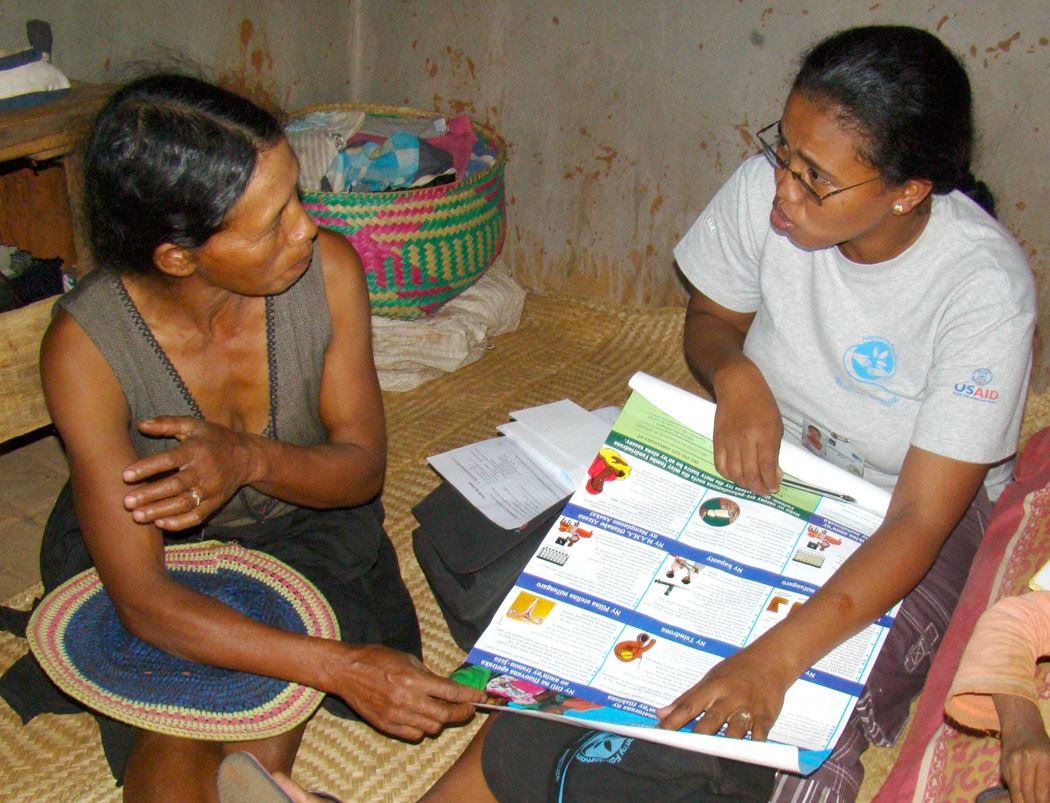Speeches Shim
Over 60 percent of Madagascar’s people live more than 5 kilometers from a health center, often in very remote and difficult to reach areas without roads or communications. Health personnel are unevenly distributed. Drug and medical supplies are prone to stock outs and are unavailable in some areas. Administration of the public health system is weak, and growing weaker: development is undermined by high rates of illiteracy, gender inequity and economic disparity. The 2009 unconstitutional transfer of government further strains public services and threatens social and economic progress.
Health is a large portion of USAID’s assistance in Madagascar with a focus on:
- Preventing and treating of malaria
- Improving of maternal, child and infant health
- Preventing sexually transmitted infections and diseases, including HIV/AIDS
- Increasing availability of voluntary family planning and reproductive health services
Working with community health workers is in important part of our strategy to promote the management of healthcare at the community level.
Infectious Diseases
Malaria is one of the leading causes of sickness and death in Madagascar, even though huge strides have been made in recent years: morbidity dropped from 21 percent in 2003 to 5 percent in 2011. The President’s Malaria Initiative began its efforts to eliminate malaria in Madagascar in 2008 and continues to support four key interventions to prevent and treat malaria in the country: spraying homes with insecticides, providing insecticide-treated mosquito nets to households, buying and distributing lifesaving drugs, and pre-emptively treating pregnant women.
Maternal and Child Health
USAID programs help deliver essential services and products for maternal, child and newborn health with the goal of providing quality community health services to isolated rural populations. Well over 12,000 volunteers are being trained, supplied, and monitored to provide life-saving, primary health care services in nutrition, breastfeeding, pneumonia case management, diarrhea, pregnancy screening and early detection of obstetric and neonatal complications to those living in underserved communes across target regions.
Family Planning
USAID works with both community health workers and a social marketing program to provide low cost, high quality family planning options to women and men across Madagascar. Trained community health workers provide counseling and subsidized products to women, such as IUDs and birth control pills. Recently other long-term methods have been offered through the use of very successful “mobile clinics” that roam the countryside bringing reproductive health and family planning to previously unreachable areas. Madagascar has welcomed family planning efforts: the government made family planning one of the eight pillars of the Madagascar Action Plan, an ambitious economic and social development strategy launched by former President Marc Ravalomanana in 2008.



Comment
Make a general inquiry or suggest an improvement.